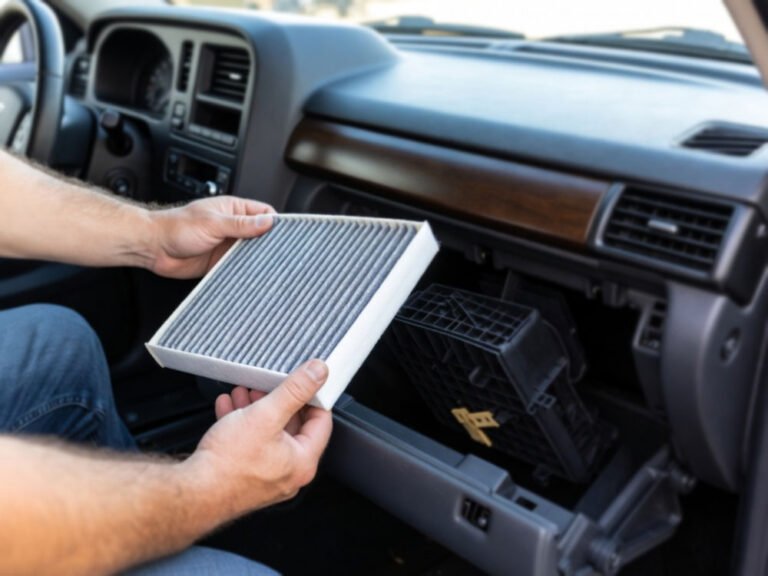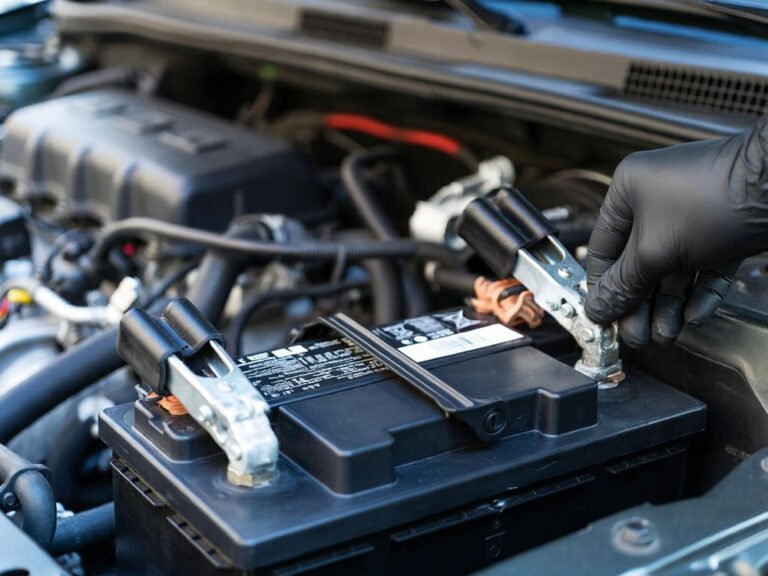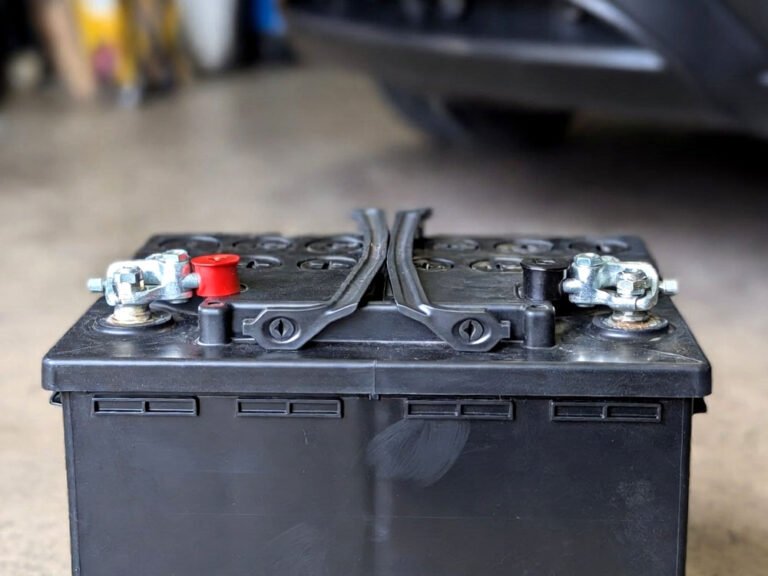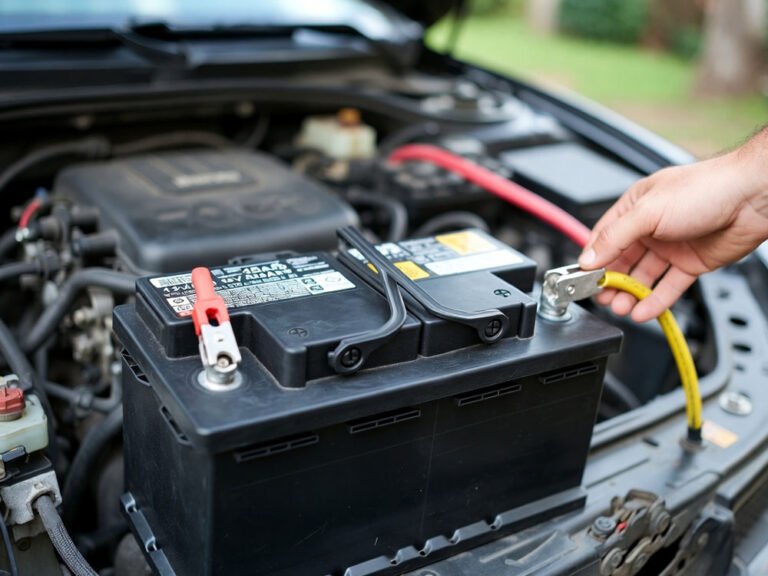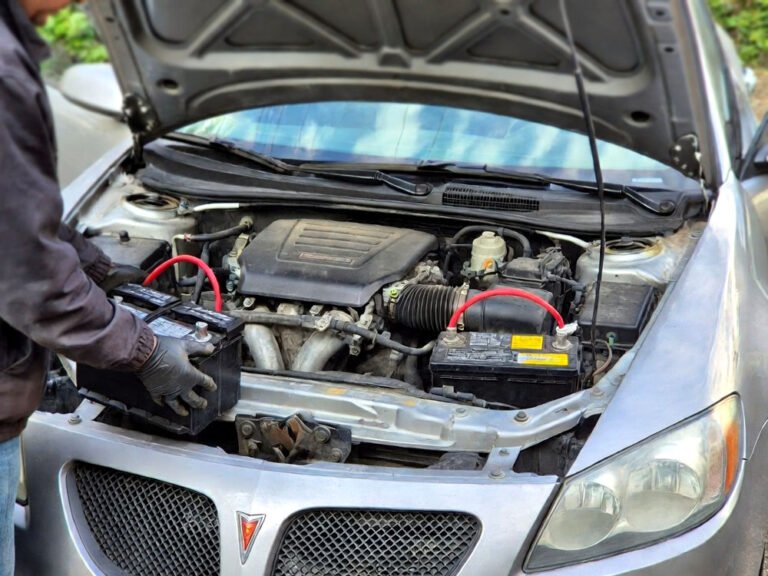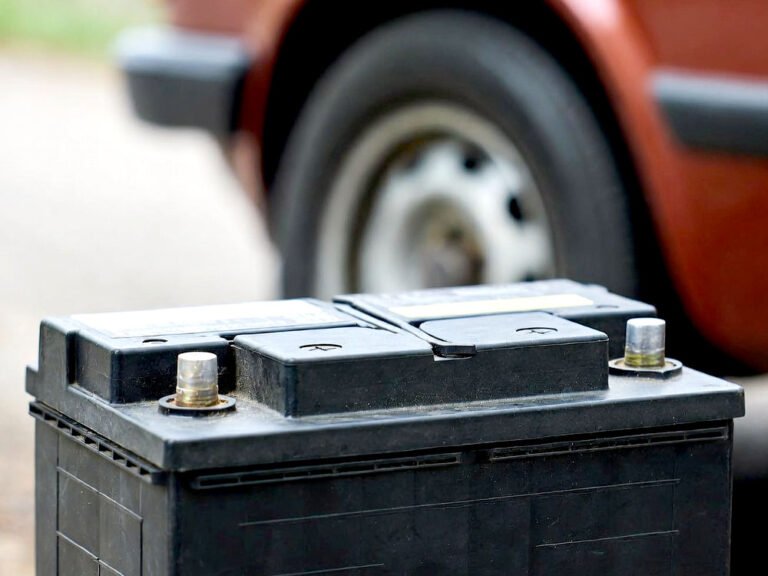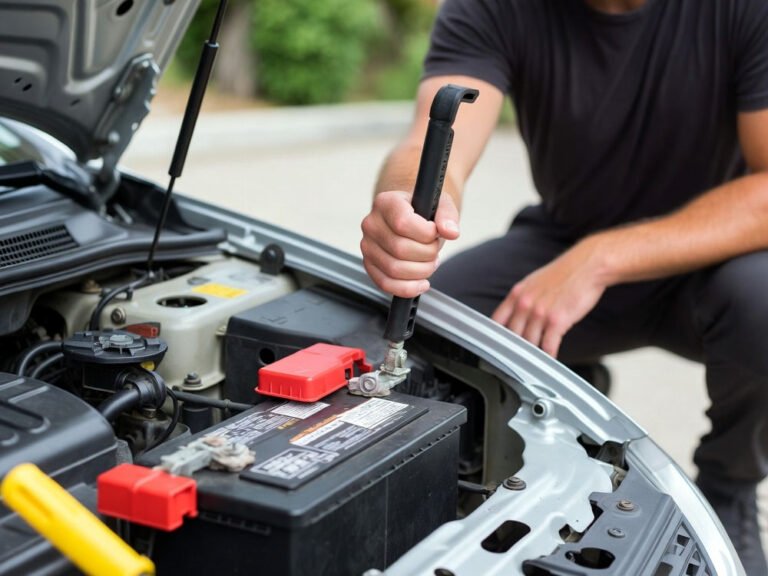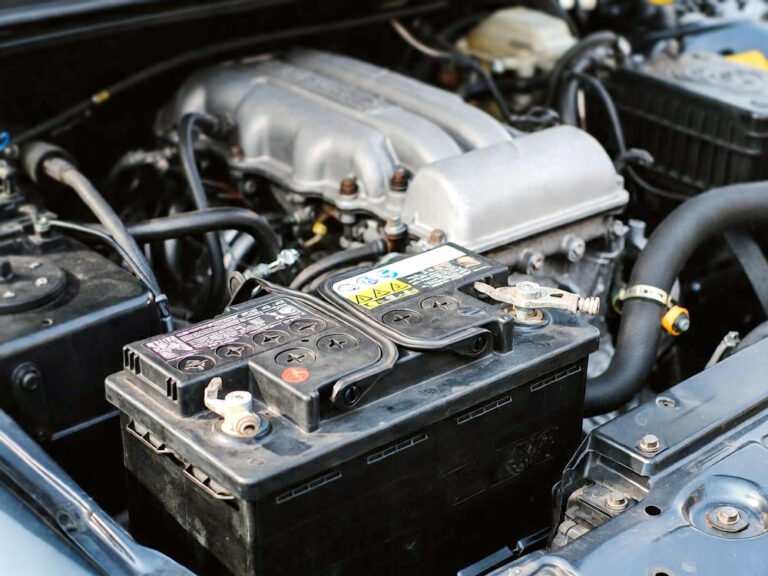You are driving your car, and suddenly it jerks when you press the gas. There is no check engine light, but something clearly feels wrong. You feel confused and even a little scared. This happened to me too, and I found out that it could be a simple fix like dirty fuel injectors or something bigger like transmission issues. In this article, you will learn what causes this problem and how to fix it, even when there is no check engine light.
Check the Fuel System for Clogs or Dirt
One of the most common reasons a car jerks while speeding up is fuel problems. Your car engine needs a steady flow of clean fuel. If there is dirt, water, or anything blocking this flow, the engine can’t work right. This leads to jerks, hesitation, or a shaky ride.
Your fuel filter could be clogged. This part catches dirt and keeps it from going into the engine. Over time, it can get full. When that happens, not enough fuel gets to the engine, and it jerks when you push the gas.
Dirty fuel injectors are another reason. These small parts spray fuel into your engine. If they get dirty, the spray is weak or uneven. This can make the engine run rough or hesitate during acceleration.
Sometimes, it’s the fuel pump. This pump moves fuel from the tank to the engine. If it is old or damaged, it might not give enough fuel under pressure, especially when you press the gas pedal fast.
Water in the fuel is rare but still possible. It usually happens after a bad fill-up or if there’s moisture in your gas tank. Water doesn’t burn like fuel, so your engine can jerk or even stall.
To fix these, start with the easiest step: change your fuel filter. Next, try using a good fuel injector cleaner. You can pour this into your gas tank and drive a few miles. If it gets better, then it was likely dirty injectors.
If nothing helps, a mechanic can test your fuel pump pressure. That way, you can find out if it’s weak or dying. It’s better to fix it before it fully breaks down.
- Fuel filter might be clogged
- Dirty fuel injectors cause uneven fuel spray
- Fuel pump might be weak or old
- Water in gas can cause jerking
- Try fuel injector cleaner first
- Change the fuel filter regularly
- Ask a mechanic to check fuel pressure
Look at the Transmission System
The transmission helps your car change gears as you speed up. If it is not working right, the car can jerk or feel like it pulls. Even if the check engine light is not on, the problem might still be there.
Automatic transmissions use fluid to change gears smoothly. If the fluid is low or dirty, the gears may slip or shift hard. This causes a jerking feeling. Check your fluid level using the dipstick, usually near the engine. The fluid should be red and not smell burnt.
If you drive a manual car, the clutch may be slipping. That means the power from the engine is not going smoothly to the wheels. You’ll feel it more when speeding up or going uphill. It may also make noise.
Another part is the transmission mount. This is what holds your transmission in place. If it is broken or loose, your car may jerk every time the engine moves or shifts.
Sometimes, the transmission control module (TCM) is the problem. This part tells the transmission when to shift. If it goes bad, it might shift too late or too early, causing the car to jerk.
The best thing you can do is check your transmission fluid first. If it’s low, add more. If it’s dirty, get it flushed and changed. If that doesn’t help, let a mechanic inspect the transmission parts like the clutch or the mounts.
- Low or dirty transmission fluid can cause hard shifts
- Worn clutch leads to jerking in manual cars
- Bad transmission mounts make the engine move too much
- TCM might not be shifting gears at the right time
- Check and replace transmission fluid if needed
- Have a mechanic check the clutch and mounts
- Automatic and manual cars have different issues
Inspect Spark Plugs and Ignition Parts
Your car’s engine runs on small explosions inside the cylinders. These are made by sparks. If the spark is weak or mistimed, the explosion is not smooth. This can make your car jerk, especially when you press the gas.
Spark plugs wear out over time. They can get dirty or cracked. If that happens, they won’t make a strong spark. This causes misfires, which feel like the engine stumbles or shakes.
Ignition coils are another important part. They send power to the spark plugs. If a coil is weak or broken, one of the cylinders may not work right. This leads to uneven engine performance and jerking.
Wires connected to these parts can also go bad. Heat and time wear them out. If the connection is not good, the spark might not reach the plug in time.
Even if the check engine light is not on, you might still have a small misfire. Some misfires don’t trigger the light but still cause jerking.
To fix this, check your spark plugs. They should be clean and have no cracks. If they look old or burned, change them. They are cheap and easy to replace.
Also, check the ignition coils and wires. You can do this at home with a simple tester. Or you can have a mechanic test them to see if they are giving full power.
- Bad spark plugs cause misfires and jerks
- Ignition coils may send weak spark
- Worn wires can cause weak or no spark
- Misfires can happen without check engine light
- Replace old spark plugs first
- Test ignition coils for weak output
- Check wires for cracks or burns
Check for Dirty or Broken Sensors
Cars today use many sensors to run smoothly. These sensors tell the engine how to adjust fuel, air, and timing. If a sensor is dirty or broken, your car can jerk even if the check engine light stays off.
The mass air flow (MAF) sensor checks how much air goes into the engine. If it’s dirty, your engine might not get the right fuel mix. That causes jerks or slow acceleration.
Another one is the throttle position sensor (TPS). It tells your car how much you press the gas pedal. If it gives the wrong reading, the car might hesitate or jump forward.
Oxygen sensors also matter. They help control fuel mix by checking the air in your exhaust. If they give bad data, the fuel mix goes off, and the car can jerk or run rough.
You can clean the MAF sensor using a special spray. It’s found between the air filter and engine. Just be gentle—do not touch it with your fingers.
If that doesn’t help, you may need a scan tool to read sensor data. Even without a check engine light, some tools can still show issues.
- MAF sensor may be dirty or faulty
- TPS might send wrong signal to engine
- Oxygen sensors help with fuel mix
- Bad sensors cause hesitation and jerking
- Clean MAF with proper spray
- Use scan tool to check sensor data
- Replace broken sensors as needed
Inspect Engine Mounts and Suspension Parts
Engine mounts hold the engine tight to the car frame. When they wear out or break, the engine can move too much. You will feel this as a hard jerk, especially when starting or speeding up.
Old mounts may look fine, but inside they are weak. Rubber inside the mount may crack or break. When you press the gas, the engine shifts suddenly, causing a loud clunk or a sharp jerk.
Suspension parts can also make the car jerk. If your shocks or struts are worn, your car may bounce or shake too much during acceleration. It feels like a loose ride.
Bad CV joints or axles can cause jerks too. These parts help transfer power to the wheels. When they wear out, the motion becomes rough.
If you feel the jerk mostly when starting to drive or when going over bumps, it could be a sign of bad mounts or suspension parts.
To fix it, get your engine mounts checked by a mechanic. They can test them with a pry bar or by watching the engine move. Also, have your suspension checked for worn parts.
- Engine mounts may be cracked or weak
- Worn suspension makes car bounce during acceleration
- Bad CV joints can cause jerking
- Jerks often come from engine movement
- Get mounts and suspension inspected
- Replace any broken parts
- A smooth ride depends on tight mounts
Don’t Forget About the Exhaust System
Your car’s exhaust removes gases after fuel burns. If there is a block or leak in the exhaust, your engine may not run smoothly. It can cause jerking when you try to go faster.
One key part is the catalytic converter. It helps clean the gases before they leave your car. If it gets clogged, the exhaust can’t flow freely. Your engine might feel like it’s choking or stalling during acceleration.
A cracked exhaust pipe or leak near the engine can also cause jerks. The engine depends on proper back pressure. If pressure drops because of a leak, it messes with fuel mix and timing.
Another thing to check is the EGR valve. It lets a small amount of gas flow back into the engine to reduce pollution. If it sticks open or shut, the engine may run rough or jerk under load.
You might also hear strange noises or smell exhaust inside the car if there’s a problem.
Fixing this depends on the issue. You can tap on the catalytic converter to see if it rattles. That may mean it’s broken inside. A mechanic can do a full test for exhaust flow and leaks.
- Clogged catalytic converter restricts engine
- Exhaust leaks cause loss of back pressure
- EGR valve can stick and cause rough engine
- Exhaust problems affect power and fuel mix
- Check for strange smells or noises
- Test for exhaust leaks and blockages
- Replace or repair damaged exhaust parts
Final Thoughts
When your car jerks while speeding up but shows no check engine light, it can feel scary and confusing. But the cause is often something simple like dirty spark plugs or a clogged fuel filter. It’s important to check the fuel system, ignition parts, sensors, mounts, and even the exhaust. Each one can cause jerks without triggering a warning light. Taking small steps and checking each area can help you fix the problem and feel safe on the road again.
| Problem Area | Possible Cause | How It Feels | What to Do | Easy Fix |
|---|---|---|---|---|
| Fuel System | Dirty filter, bad pump, water | Jerks, weak power | Change filter, clean injectors | Fuel cleaner, replace part |
| Transmission | Low fluid, bad clutch, TCM issue | Jerks on shifting | Check fluid, visit mechanic | Fluid change |
| Ignition System | Bad plugs, coils, wires | Misfires, hesitation | Replace plugs, test coils | Plug replacement |
| Engine Sensors | Dirty MAF, bad TPS or O2 sensor | Slow response, jerks | Clean or replace sensors | Sensor spray |
| Engine Mounts/Suspension | Worn mounts, bad struts or joints | Hard jerk or bounce | Replace mounts or parts | Mechanic check |
| Exhaust System | Clogged converter, leaks, bad EGR | Stalls or jerks | Test and repair exhaust | Catalytic check |
Frequently Asked Questions (FAQs)
Is it safe to drive if my car jerks while accelerating?
No, it is not fully safe. Even if there’s no check engine light, jerking means your car isn’t working right. It could be something small or something that gets worse fast. Driving like this can make the problem grow, cost more money later, or even damage other parts. It’s best to check it early and fix it before it turns into a big issue.
Can dirty fuel injectors cause jerking without a warning light?
Yes, they can. Dirty fuel injectors spray fuel unevenly into the engine. This leads to poor combustion, weak power, and jerking. Because it doesn’t always cause a full misfire, the car’s computer may not turn on the check engine light. You can try using a fuel injector cleaner first. If that doesn’t help, the injectors may need cleaning by a mechanic or even replacement.
Do I need to change my spark plugs if there’s no check engine light?
Yes, you still might need to. Spark plugs wear out slowly, and the car won’t always show a warning. If they’re old or dirty, they can cause small misfires, rough idle, and jerking when you press the gas. Even without a light, changing spark plugs every 30,000 to 60,000 miles is a good idea for smoother driving.
Is it my transmission if the car jerks only when changing gears?
It could be. Jerks during gear shifts often point to a problem with the transmission. This might be low or dirty transmission fluid, a worn clutch, or a problem with the control module. Even without a warning light, these parts can still fail over time. It’s a good idea to check the fluid level and take it to a mechanic if the problem continues.
Can engine mounts cause jerking even on flat roads?
Yes, they can. Worn engine mounts let the engine move too much. When you hit the gas, the engine shifts suddenly, causing a jerk you can feel in the seat or wheel. It can happen on flat roads or when starting from a stop. Replacing broken mounts helps fix this kind of jerk and makes your ride feel tighter.
Do I need a scan tool even if there’s no check engine light?
It helps. Some problems don’t turn on the check engine light, but the data can still be read with a scan tool. It can show live sensor readings, misfire counts, or weak signals from parts like the MAF or TPS. Many auto shops will scan your car for free or for a small fee. It’s a helpful way to find hidden problems.
Is it expensive to fix jerking without a check engine light?
Not always. Many fixes are cheap, like replacing spark plugs or cleaning sensors. Even fuel injector cleaners are under $10. Some parts like the fuel pump or transmission can cost more if they’re bad. But if you catch the problem early, you can often fix it for less money. Doing a few simple checks first can save you hundreds later.
Can exhaust problems make my car jerk?
Yes. A clogged catalytic converter or a leak in the exhaust can stop gases from flowing right. This messes up engine timing and fuel mix. It can feel like choking or jerking when you speed up. You might also hear noise or smell something strange. Even without a warning light, exhaust problems can affect how the engine runs.


